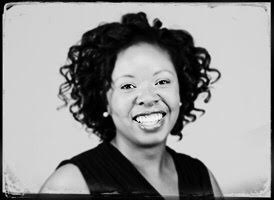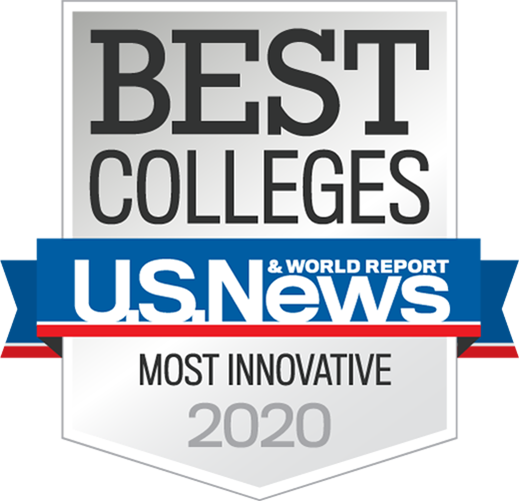How I Became an Instructional Designer: Obi
In the last few years I’ve noticed an increase in the number of questions I’ve been asked by visitors to Arizona State University about the Instructional Designers on our team, Instructional Design & New Media, in EdPlus. People want to know about their backgrounds and academic credentials, how we find them, how we hire them, how they work as a team, how they manage their workloads, and more. It occurred to me as I answered these questions that there is a lot I don’t know about how the Instructional Designers in our group arrived at their jobs. I decided to interview some of the team to find out more about the paths they’ve taken to get here. Along the way, I was fortunate enough to have access to some of our colleagues at King’s College, London, with whom we work as part of the PLuS Alliance. In the end, I was able to interview six Instructional Designers from ASU and three from King’s College. My goal is to include Instructional Designers from our other PLuS Alliance partner, University of New South Wales, in the future.
The following includes highlights, pivotal life moments, and milestones that came out in the conversations. One post in the series will be published here at the TeachOnline website each week for nine weeks.
Obi (30s) – Phoenix – ASU
I’m the only one in my family born here in Arizona. My mother is from Philadelphia, and my father is from Nigeria. So, I had an interesting childhood, growing up with the American culture versus a lot of our Nigerian traditions.
My mother had never lived anywhere else, and she had once heard that by moving west, you can actually see the stars. So, it was her dream to move somewhere west.
 My father was always an advocate of education being important. On that side of my family, I have a lot of people who are either doctors, who are lawyers, or who are in education.
My father was always an advocate of education being important. On that side of my family, I have a lot of people who are either doctors, who are lawyers, or who are in education.
I had always wanted a job, even though my mom always said, “Don’t work. You’re going to have the rest of your life to do that. Just be a kid and finish high school.” But I wanted to earn my own money. My first job was in a clothing store. After I went through my probationary period and I earned a 30-cent raise, I said to myself, “Okay, I need to do something else. This is not substantial.”
When Krispy Kreme first came here to our state, they were building one of their locations near the Bell Road area in Peoria and someone told me they were hiring. I remember it was still just a construction site, but they had free doughnuts. They had a form to sign up for what I thought was an interview, but it wasn’t. They handed me a W-2 and continued passing me form after form. “Here’s your this. Here’s your that. Fill out this information. We’ll see you on the first day.” I was shocked, I had just been hired! After Krispy Kreme, I began working for the city of Peoria doing Parks and Rec. That was the first time that I started doing any sort of educational activities, group activities, and had the opportunity to lead our team of staff.
When I began college, I did not start with the intention of wanting to be in education; I actually pursued the culinary arts program, but the idea of working 12-hour days was not the most appealing to me. So that’s when I made the decision that maybe I should try something else. I had been immersed in this educational world, so I thought I should try teaching. For my first teaching job, I actually taught seventh-grade social studies in Glendale, and I did that for a year.
Regardless of whether you’re in Arizona or if you’re in another state, people tend to stay in those positions. Social studies or history, there isn’t a lot of movement. So, after my first year, the district informed me that they had an opening to be a third-grade teacher. I didn’t know about that, though, since I wasn’t accustomed to working with little kids. But they assured me, “No, it’ll be great. It’ll be great.” I talked to my mom a bit about it. She remembers when she was younger, she actually worked as a teaching assistant for a third-grade class, and she loved it. She told me they’re old enough to know how to tie their own shoes, blow their own nose, and they’re at that age when they’re starting to really learn how to love learning and what you’re doing, and they look up to you. You don’t always get that when you’re with middle-school kids. Third graders may get upset with you for a moment, but by the end of the day, you’re the best teacher ever. They draw you pictures and pick little flowers from the weeds outside to give to you. So at least they still look up to you. My mom was pretty convincing, so I thought I’d give it a try and see how I liked it. I ended up staying there for about four years, teaching third grade.
I finished my master’s degree, and my raise was about $2,500. That wasn’t enough to pay the rest of what I took out, so I needed to see what other opportunities were out there. It wasn’t until I was actually finished teaching, and literally that very same day, the last day of school, I went on an interview for the Department of Education to be their new Education Program Specialist. In that position, I was able to take my knowledge to a whole other level by being able to help others on a much bigger scale. The only part I did not like about it was the politics in government.
While I was still working at the Department of Education, I had an opportunity to work with a research project that had just been recently funded here at ASU through the College of Nursing and Health Innovation. The relationships that I made there were extraordinary, and I think that’s when I started to look into leadership a little bit more.
I’ve been in this position for almost three years, and when I tell other people I’m an Instructional Designer, the next question is always, “Well, what is that? That sounds interesting. That sounds really cool.” I think they like the term “design,” and to do something dealing with design sounds really motivating and interesting. So, they always want to hear more.
Marc: What one piece of advice would you give to your 18-year-old self?
It’s good to ask questions, a lot of questions, about other people’s experiences with their particular careers before you make a decision. Be patient as you go through the process, and enjoy each step of the process. I think about that even now, since I’ve returned to school, and I’m working on my doctorate degree, I’m trying to make sure that I soak it in and I enjoy every single step of the process so that I’m able to gain a deeper meaning and personal connection for myself versus when I look at my previous degree programs. Back then, I just thought I have to finish, just stay on track. I really want to be able to enjoy things a bit more than I did before. So just enjoy it. Enjoy the process.
Additional editing: Debra Sims



